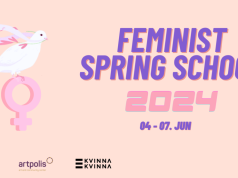
Global Education–the Human Rights dimension: application process & website
Global Education–the Intercultural dimension: application process & website
Global Education on-line training-course background information
Global Education on-line training-course evaluation report of 2012 exercise (first semester); evaluation report of 2011 exercise ; evaluation report of 2010 exercise ; evaluation report of 2009 exercise
Following the launching of the Global Education Guidelines – on-line version (re-edition 2012) available from North-South Centre (NSC) website and hard copy available upon request – the NSC Global Education programme offered its first Global Education on-line training course in 2009. Since three courses are offered annually, in Spring, Summer and Autumn for each of the two topics: 1) Human Rights dimension and 2) Intercultural dimension.
These introductory online training courses on global education (GE), with a particular focus on human rights (HR) and intercultural dialogue (ICD), target practitioners in the field of education and development, teachers, social and youth workers, as well as policy-makers, civil servants and local and regional authorities.
These four-week long online learning courses involve 10 hours of learning per week, which includes reading, discussion and response to interactive exercises. It is based on approximately 150 pages of educational material that include a diversity of interactive individual and group exercises with coached assignments, a glossary and a virtual library as well as a discussion forum. Such exercises aim at developing competences in the fields of team-building, mapping of GE/HR/ICD situation in participants’ countries, GE/HR/ICD strategies and GE/HR/ICD activity development.
The overall evaluation of the courses is very positive, with a high rating of satisfaction among the participants’ evaluation questionnaire sent after each course, considering participants’ diverse professional, geographical and cultural background.
Evaluation questionnaire assess the useful/missing aspects of the course; relevance of the exercises/pedagogical tools/time-frame; role of the coaches; improvement of the course; increased knowledge acquisition by participants and possible impact on professional background after the course
Participants professional background vary from Youth leaders, Educators, Civil Society activist, International organisations, Local Authorities and Ministries, from countries from all continents.
Call for applicants are advertised on NSC website and through NSC newsletter.
With this on-line training-course, the North-South Centre is reinforcing its capacity-building dimension within its Global Education programme and reinforcing its international networking strategy for more and better global education in Europe and beyond. It also responds to the Council of Europe strategy for Intercultural Dialogue.
“The tremendous amount of information I got from my co-participants was very amazing. The fact that all our discussions were not based only on theoretical evidence made the course very interesting. Some participants give evidence on the practical reality of global education and human right education.” Course participant statement
“I am at the moment working on a project aimed at sensitizing youth of Cameroon on the importance of education to personal development and community development. The skills I acquired during the training are a great asset to me at this moment.” Nfor Kingsley (Cameroon)
“I found most useful the very practical orientation of the course for teaching HRE skill sets and a way of understand HR that is not based on distant inaccessible legal instruments but on daily life, bringing spirituality and action together in real life situations and with a reflective consideration of the past, present and future of our work and global/local context. What I mean to say is that it is very useful course for empowering people to become Human Rights Educators”. Adam Breasley(UK)
“This course is very important for a person that works in education sector and mainly with minority group. I will share the content with some of my colleges, with young students and teachers, with partners from other countries and will try to elaborate strategies, plans and projects for action.” Rodica Silvia Barlau (Romania)
“I specifically appreciate the way the course managed to cover the global and the local context. I have been pleasantly surprised that the course gave me an opportunity to think further about my own habitat and personal issues”. Jana Draškovic (Serbia)
What were the main competences and skills you have developed throughout this course?
– Multiperspectivity, creating a social analysis and strategy. Eva Vernerova (Czech Republic)
What were the main competences and skills you have developed throughout this course?
– More international perspectives on global education; more strategy ideas; more resources to use in my work (videos, links and articles are great!); more colleagues. Tonya Muro Phillips (USA)
“I was amazed that via internet it is possible to work on attitudes. I thought through this course I will develop my knowledge but there was so many exercises that make my attitudes change like one in the beginning when we were supposed to have a walk in our neighbourhoods and find intercultural aspects”. Marta Pietrusinska (Poland)
“I liked the course design that it starts with theoretical inputs on global education and makes a link with intercultural dimension using participants’ observation and experience, then is followed with educational practices giving possibility to discuss it both in formal and non-formal education, and at the end it shifts to “activist” approach giving reasonable tools and measures that should be taken in order to affect a change in society”. Ksenija Milic (Serbia)











